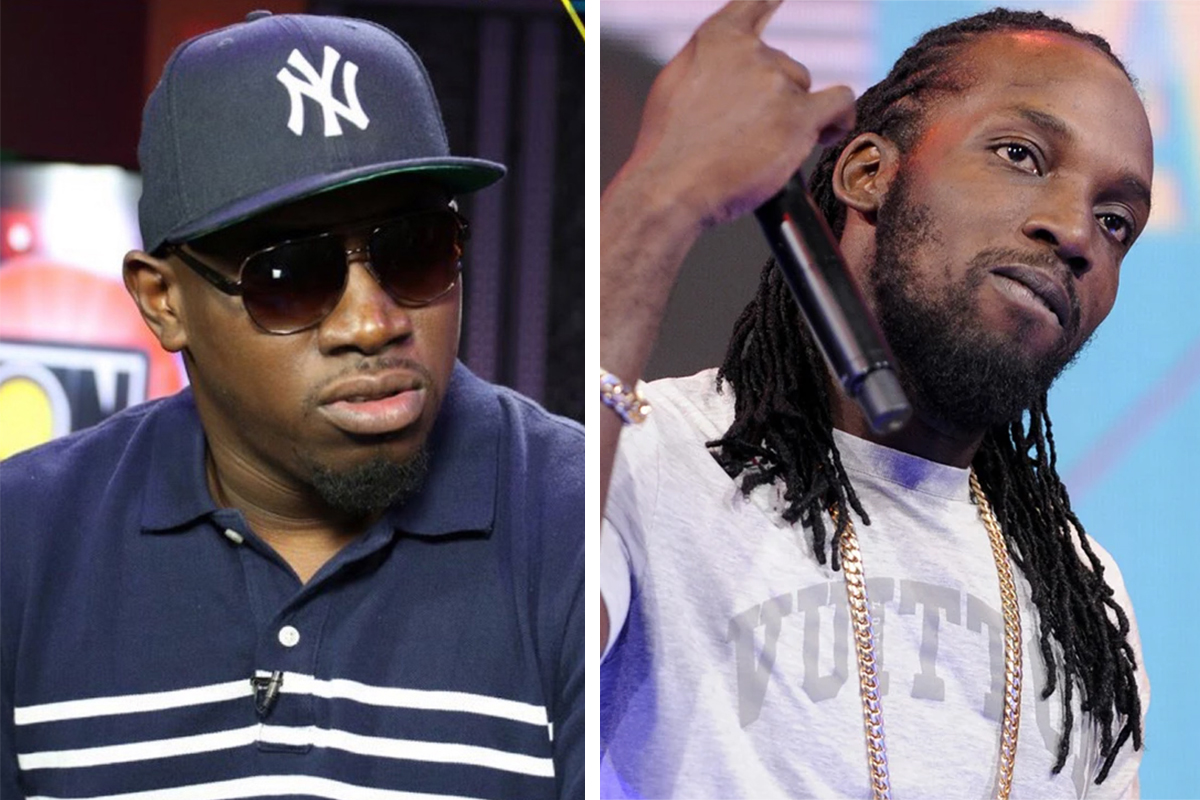Foota Hype On How Mavado Became A Dancehall Star

Self-proclaimed Viral King Foota Hype has claimed that he was the catalyst that spearheaded Mavado’s rise to musical stardom, and that the Gullyside artist cannot dispute this fact.
According to Foota, through the DJ duo of Razz and Biggy—who started sparring with him after what he described as his impressive performance at Fully Loaded 2001 in Portmore, St. Catherine—he was able to meet the production trio of Serani and David and Craig Harrisingh from Daseca Music Group. Foota said further, that he told the producers to voice Mavado in exchange for an introduction to Foota’s “garrison” communities.
“A suh dem meck mi know Daseca dem now. An a suh me come gi Daseca dem di buss now. An a true Daseca linkage meck Mavado buss. Suh yuh si how one ting lead to a next ting?’ Foota said in an interview with Teino Evans on his Next Frideh show on YouTube.
“Caw when me know Daseca and dem a ask me fi gi dem di strength, mi tell dem seh di ongle way mi a gi dem di strength, dem haffi voice Kibaki, Mavado and Flexx. It was an ultimatum. A nuh like him know Flexx or him know Kibaki or MAvado from noweh.”
“But a my determination fi my fren dem buss meck me set dah requirement deh. Suh, a suh Flex voice, Kibaki voice and Mavado. Mavado voice Real McKoy. Anytime oonu get a chance, how him end up voice dah song deh? Suh when me come public and mi seh a me response fi Mavado buss; a me tun Mavado inna main name, nobaddy caan tell mi ‘nuh seh suh’, an nobaddy caan vex… nobaddy caan argue wid mi,” Foota added.
Real Mckoy featured on Mavado’s 2oo7 debut album Gangsta for Life: The Symphony of David Brooks with songs spanning 2004 to 2007.
The album tracks included hits such as Real Mckoy With A Full Clip featuring Busy Signal; Weh Dem a Do, They Fear Me, Dreaming, Last Night, Amazing Grace, Touch the Road, Gully Side, Born & Raised.
In elaborating further on his point, Foota said that without his intervention, no connection would have been made between Mavado and Daseca, ever, as the producers did not even know of Mavado’s existence.
“Cause a nuh like Daseca si yuh pon a show and feel like: ‘mi waan voice yuh’. And yuh nuh know Daseca dem from noweh. A me a di bridge from poverty to wealth. Me meck oonu know each odda. Ongle man weh can talk to mi a Razz and Biggy, caw a dem meck me know Daseca dem,” Foota argued.
As early as 2007, Daseca had created some of Dancehall’s most popular riddims including the Chakka Chakka riddim, done for Fire Links, Gully Sitn for Foota Hype himself, the Steps riddim which featured Sean Paul’s hit song We Be Burning, the Anger Management, Wipe Out and Airwaves riddims. By that time they had been voicing Mavado on many of their riddims including songs like Dying. They also voiced Busy Signal’s Bad Man Place and The Days, Beenie Man’s Back It Up and Bugle’s breakout hit single What I’m Gonna Do.
Foota said the link he made for Mavado back in the early 2000s before Daseca came to national attention, was mutually beneficial as the trio were virtual unknowns up to the point when he started producing Mavado’s music in what turned out to be a very fruitful partnership.
“Dem (Daseca) neva did a run di place. Dem neva have no name suh dem want my strength fi carry dem name inna di garrison; bring dem brand to di people, so I was a helping hand to Daseca. And mi seh if me a guh help you do dis, you haffi help me do dis and dat is how the equation even happen. And here we go; we have Mavado today as an icon – as a legend,” the Dark Knight producer said.
“A Foota do dat. And him can come talk to if him wish fi talk di truth,” he said, referring to Mavado.
